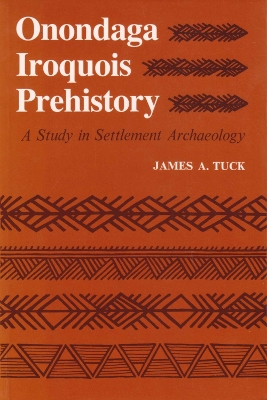The Iroquois and Their Neighbors
1 total work
The book opens with a brief historical outline of Onondaga culture and a sketch of the major developments in Iroquois prehistory. Each site is described, with a short account of its discovery, location in relation to other sites and natural features, testing and excavations, and artifacts. The site descriptions are arranged in chronological "phases"— Castle Creek, Oak Hill, Chance, and Garoga—based upon William A. Ritchie’s classification.
In the last chapter, Professor Tuck summaries his wealth of data and interprets the origin and development of Onondaga culture in view of his archaeological findings, which also make us of radiocarbon dating techniques.
The illustrations are an essential part of the book. Forty-four plates show arrowpoints, ceramic sherds, post molds revealing outlines of longhouses, cooking pits, occasional human burials, smoking pipes, and much more. Eight figures provide maps of sites, specific details of excavations, and a chronological sequence of Onondaga villages. Twenty-one tales give the frequencies and percentages of smoking pipe varieties, faunal remains, ceramic types, and other items discovered in the field work. An appendix includes techniques of ceramic analysis and many line drawings of ceramic varieties.
